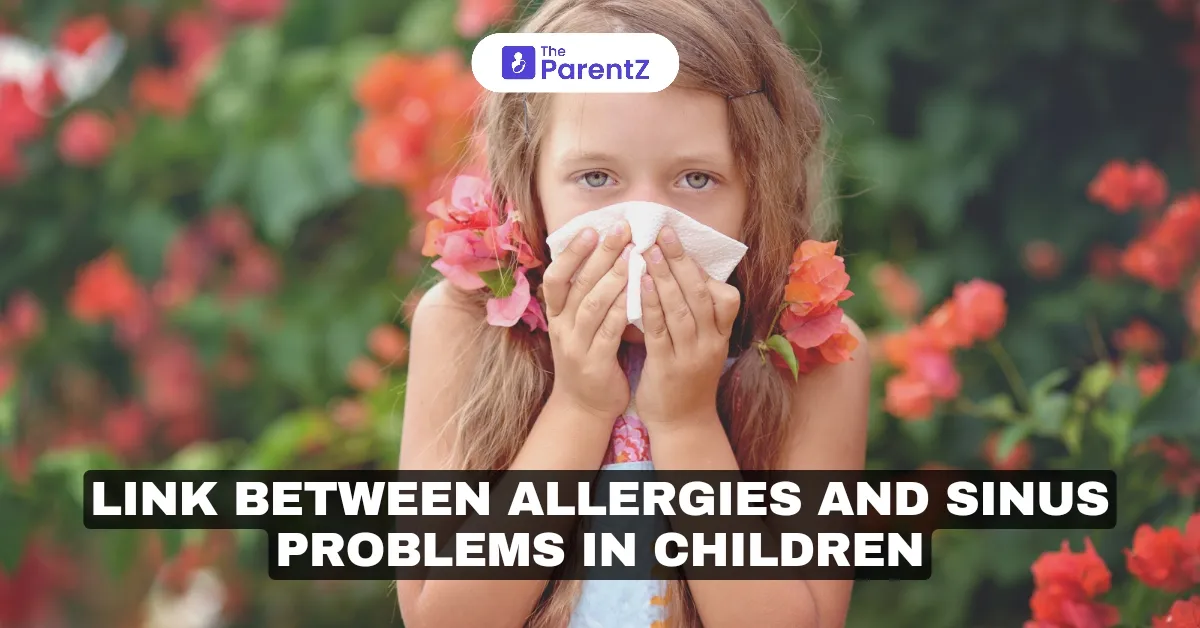Allergies are a common health concern in children, affecting their respiratory system and overall well-being. Allergic reactions can cause inflammation in the nasal passages, leading to sinus problems. Understanding this link is essential for early diagnosis and effective management.
How Allergies Affect the Sinuses
Sinuses are air-filled cavities in the skull lined with mucous membranes. Allergies, such as hay fever (allergic rhinitis), cause the immune system to overreact to harmless substances like pollen, dust, or pet dander. This reaction leads to:
• Inflammation of the nasal passages (allergic rhinitis)
• Increased mucus production
• Swelling that blocks sinus drainage pathways
When the sinuses fail to drain properly, it can result in sinus problems, including sinusitis, causing discomfort and recurrent infections.
Common Triggers of Allergies in Children
1. Environmental Allergens: Pollen, mold, dust mites, and animal dander
2. Food Allergies: Milk, eggs, peanuts, and other allergens
3. Seasonal Changes: Allergens like pollen are more prevalent in spring and fall.
4. Indoor Irritants: Smoke, strong odors, and pollution exacerbate allergic reactions.
Symptoms of Allergies and Sinus Problems in Children
Allergy Symptoms:
• Sneezing and runny nose
• Itchy eyes, nose, and throat
• Nasal congestion
Sinus Problem Symptoms:
• Facial pain or pressure
• Persistent nasal congestion
• Thick, yellow-green nasal discharge
• Headache or ear pain
• Fatigue and irritability
The Connection Between Allergies and Sinusitis
Chronic allergies can lead to persistent nasal inflammation, which:
• Blocks normal mucus flow, increasing the risk of bacterial or viral infections.
• Contributes to chronic sinusitis, characterized by symptoms lasting more than 12 weeks.
In children, this connection often results in recurrent sinus infections, affecting their sleep, school performance, and overall quality of life.
Diagnosis of Allergy-Related Sinus Problems
1. Medical History: Identifying recurring symptoms and potential triggers.
2. Physical Examination: Checking for nasal congestion, swollen nasal passages, or discharge.
3. Allergy Testing: Skin prick tests or blood tests to identify specific allergens.
4. Imaging Studies: X-rays or CT scans to evaluate sinus health in severe or chronic cases.
Managing Allergies to Prevent Sinus Problems
1. Avoid Allergen Exposure
• Keep windows closed during high-pollen seasons.
• Use air purifiers and wash bedding frequently to reduce dust mites.
• Limit exposure to pets if allergic.
2. Nasal Hygiene
• Saline nasal sprays or rinses help clear allergens and mucus.
• Encourage regular handwashing to prevent infections.
3. Medication
• Antihistamines: Control allergic reactions (e.g., cetirizine, loratadine).
• Nasal Corticosteroids: Reduce inflammation (e.g., fluticasone, mometasone).
• Decongestants: Relieve nasal congestion (short-term use only).
4. Allergy Immunotherapy
For children with severe allergies, immunotherapy (allergy shots or sublingual tablets) can reduce sensitivity to allergens over time.
Treating Sinus Problems in Children
1. Home Remedies:
• Use a humidifier to moisten dry air.
• Ensure adequate hydration to thin mucus.
2. Medications:
• Antibiotics: For bacterial sinus infections.
• Pain Relievers: To alleviate facial pain or headaches.
3. Surgical Intervention:
• Rarely, procedures like adenoidectomy or Functional Endoscopic Sinus Surgery (FESS) may be needed in children with chronic sinusitis unresponsive to medical therapy.
Preventing Sinus Problems in Children with Allergies
• Manage allergies proactively with prescribed medications.
• Address environmental triggers and maintain a clean, allergen-free home environment.
• Encourage a healthy lifestyle, including balanced nutrition and regular physical activity, to boost immunity.
Conclusion
Allergies and sinus problems are closely linked in children, with allergies often triggering or exacerbating sinus issues. Early recognition of symptoms and appropriate management can prevent complications, ensuring a better quality of life for affected children. Parents should consult healthcare providers to create tailored care plans for their child’s needs.
References
• Meltzer EO, Hamilos DL. Rhinosinusitis diagnosis and management for the clinician: A synopsis of recent consensus guidelines. Mayo Clin Proc. 2011;86(5):427-443.
• Skoner DP. Allergic rhinitis: Definition, epidemiology, pathophysiology, detection, and diagnosis. J Allergy Clin Immunol. 2001;108(1 Suppl):S2-S8.
• Wald ER. Sinusitis in children. N Engl J Med. 1992;326(5):319-323.








Be the first one to comment on this story.